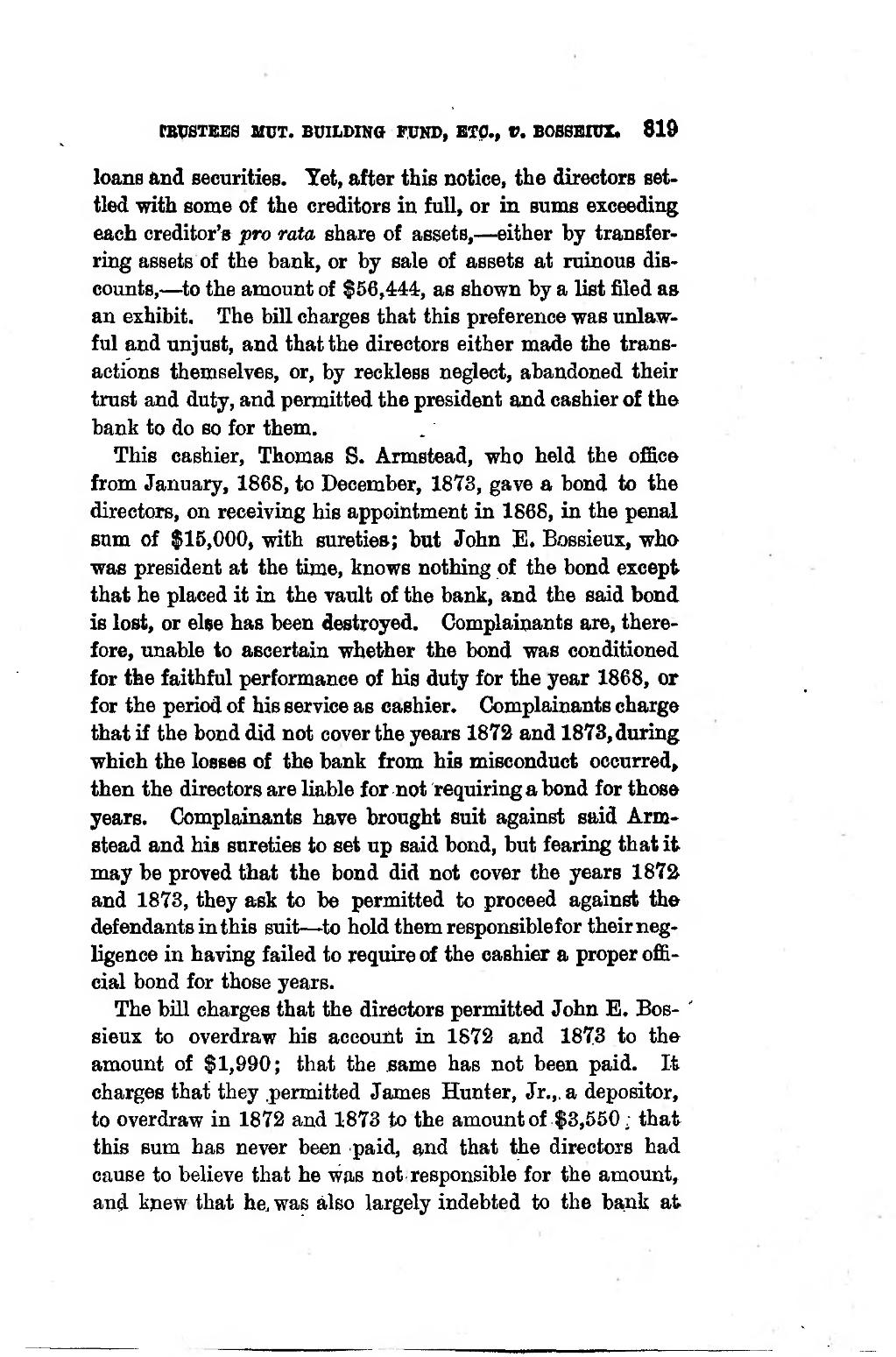rSUSTEES MOT. BUILDIMO FUND, ETC., V. BOSSBIUX. 819 �loans ftnd Becnrities. Yet, after this notice, the directors set- tled with some of the creditora in fuU, or in aums exoeeding each creditor's pro rata share of assets, — either by transfer- riug assets of the bank, or by sale of assets at ruinons dis- counts, — to the amount of $56,444:, as shown by a list filed as an exhibit. The bill charges that this preference was unlaw- ful and unjust, and that the directors either made the trans- actions themselves, or, by reckless neglect, abandoned their trust and duty, and permitted the president and cashier of the bank to do so for them. �This cashier, Thomas S. Armstead, who held the office from January, 1868, to December, 1873, gave a bond to the directors, on receiving his appointment in 1868, in the penal Bum of $15,000, with sureties; but John E. Bossieui, -who ■was president at the time, knows nothing of the bond except that he plaoed it in the vault of the bank, and the said bond is losi, or else bas been destroyed. Gomplainants are, there- fore, unable to ascertain -whether the bond was conditioned for the faithful performance of his duty for the year 1868, or for the period of his service as cashier. Gomplainants charge that if the bond did not cover the years 1872 and 1873, during which the loseee of the bank from his misconduct occurred, then the directors are liable for not requiring a bond for those years. Gomplainants have brought suit against said Arm- Btead and Mb sureties to set up said bond, but fearing thatit may be proved that the bond did not cover the years 1872 and 1873, they ask to be permitted to proceed against th© defendants in this suit — to hold them responsiblefor their neg- ligence in having f ailed to require of the cashier a proper offi- ciai bond for those years. �The bill charges that the directors permitted John E. Bos- sieux to overdraw his account in 1872 and 1873 to the amount of $1,990; that the same has not been paid. It charges that they .permitted James Hunier, Jr.,, a depositor, to overdraw in 1872 and 1873 to the amountof $3,550 : that this sum has never been paid, and that the directors had cause to believe that he was notresponsible for the amount, and knew that he, was also largely indebted to the bank at ����
